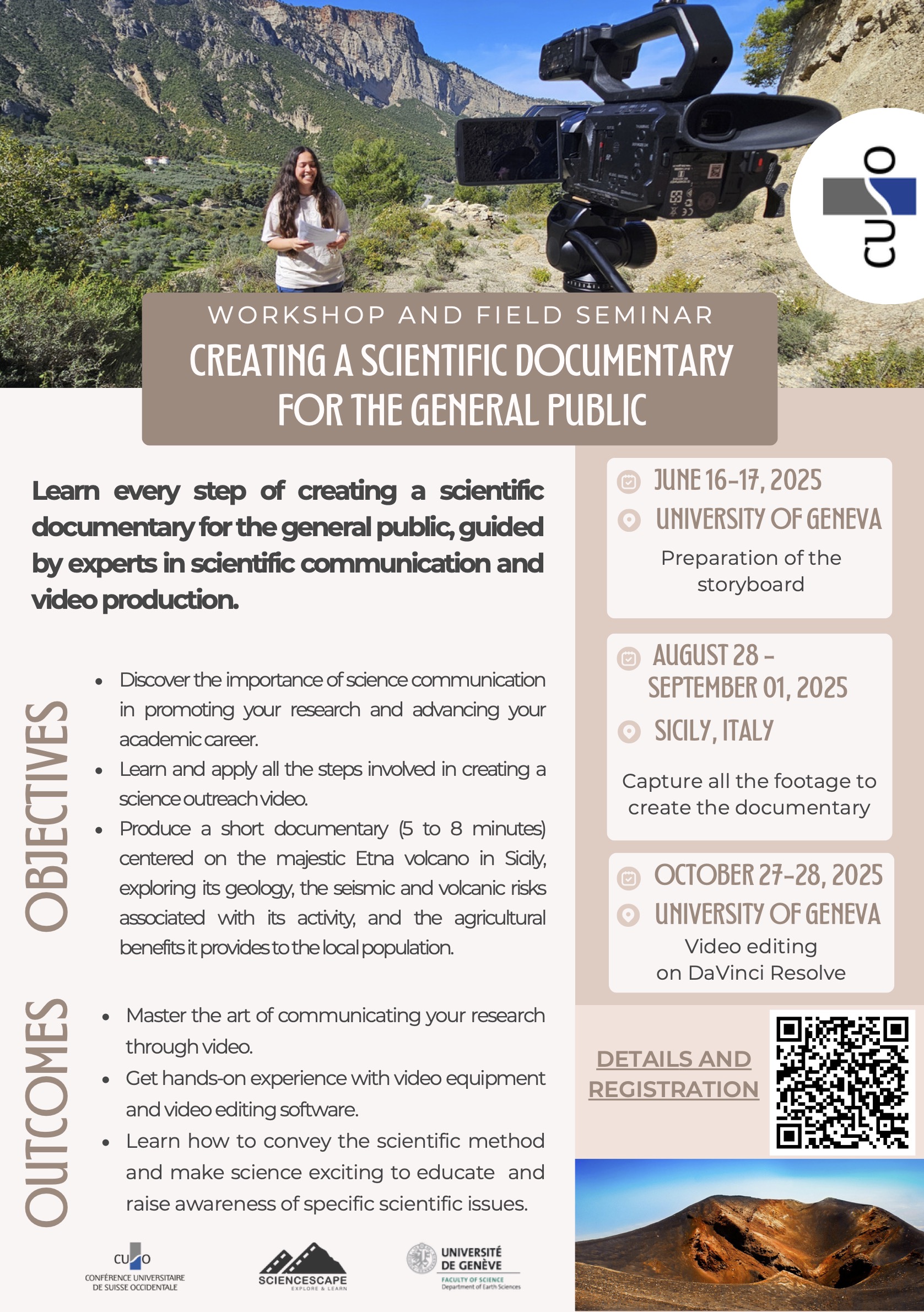Detailed information about the course
| Title | Creating a Scientific Documentary for the General Public – A Joint Workshop and Field Seminar |
| Dates | 16-17 June, 28 August-1 September, 27-28 October 2025 |
| Organizer(s) | Dr. Lucas Vimpere, Earth Science Department, Faculty of Science, University of Geneva |
| Speakers | Dr Giovan Peyrotty, SciencEscape association, Genève |
| Description | Scientific communication is a crucial aspect of science that remains underemphasised in the education of future researchers, despite its critical role in strengthening the fragile link between science and society. One of the most effective ways to convey scientific messages to the general public is through the power of images and words by creating captivating, aesthetic, and educational documentaries. This can be achieved without the need for cinema-grade equipment or multi-million budgets. This course aims to teach doctoral students how to create short documentaries by developing a storyboard, using video equipment outdoors, and utilising video editing software. The proposed course will be conducted in three phases:
Regarding distribution, depending on the final outcome of the produced film, it may be screened during the ESPP day, shown in the geology departments of each involved university (depending on the organization and willingness of each institution), and submitted to scientific film festivals for potential selection (Global Science Film Festival, Swiss International Film Festival, Earth Futures Festival). The film will also be available to universities, museums, and schools as an educational resource. Download flyer |
| Program |
|
| Location |
UNIGE et Sicile |
| Credits | 2.5 |
| Information | |
| Places | 12 |
| Deadline for registration | 31.05.2025 |



